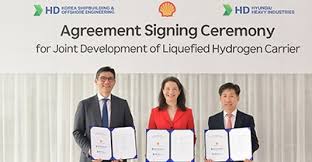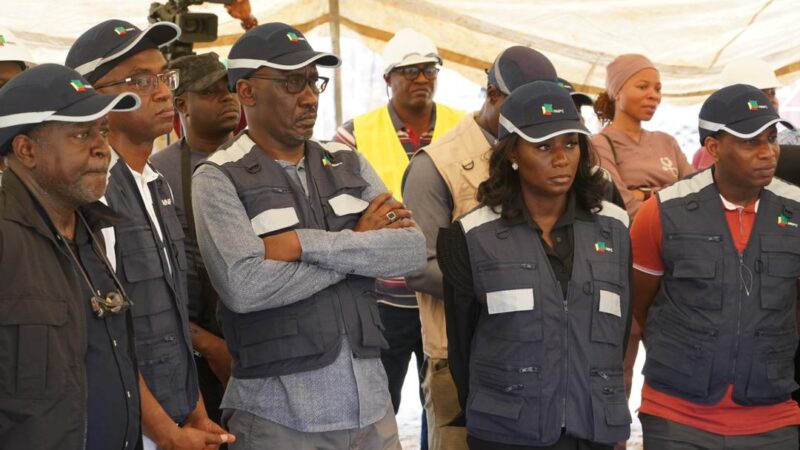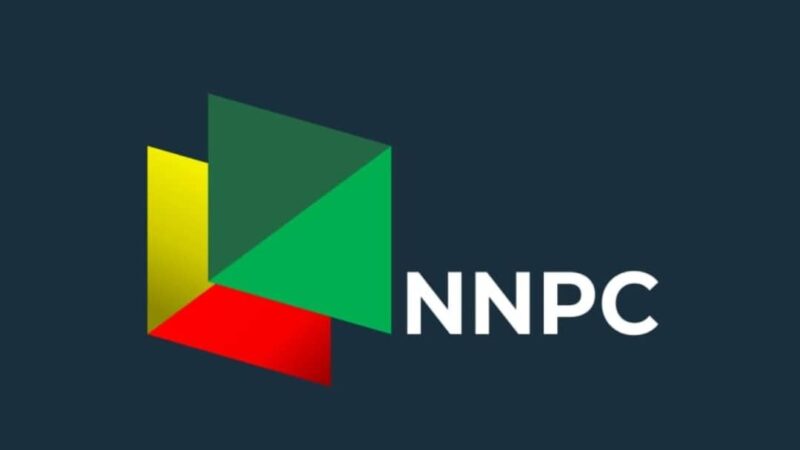Shell Partners Hyundai On Liquefied Hydrogen Carriers

South Korean shipbuilding conglomerate HD Hyundai has partnered with UK energy major Shell to work on the development of large liquefied hydrogen (LH2) carriers.
HD Hyundai’s units HD Korea Shipbuilding and Offshore Engineering (HD KSOE) and HD Hyundai Heavy Industries (HD HHI) signed a joint development agreement with Shell at the HD Hyundai Global R&D Center on May 24, 2024.
Under the agreement, the partners plan to jointly develop large liquefied hydrogen carriers with the goal of commercializing their production in 2030.
HD KSOE will use its knowledge to research and develop core technologies such as large liquefied hydrogen tanks and hydrogen cargo operation systems. Meanwhile, HD Hyundai Heavy Industries is responsible for the development of hydrogen engines and the design of liquefied hydrogen carriers.
Shell plans to share its know-how in developing related technology and operating a carrier. The company will also review the feasibility of designing a liquefied hydrogen carrier.
The liquefied hydrogen maritime transportation market is expected to gain momentum in the future. According to global market research firm Statista, the hydrogen transportation market, including ships and pipelines, is expected to reach approximately $566 billion in 2050.
In February this year, HD KSOE teamed up with compatriot Hyundai Glovis, Japanese shipping company Mitsui O.S.K. Lines (MOL) and Australian energy major Woodside to study the development of shipping solutions for bulk marine transportation of liquid hydrogen. The aim is to establish a liquefied hydrogen supply chain in Asia and other regions.
In 2023, DNV issued an approval in principles (AiP) to HD KSOE and its subsidiaries HD Hyundai Heavy Industry and Hyundai Mipo Dockyard (HMD) for their hydrogen system for a liquefied hydrogen carrier.
The system utilizes boil-off gas from hydrogen transport for a hybrid propulsion system, integrating hydrogen DF engines and fuel cells. (World Maritime News)






